Business
54% of agile Nigerians unemployed, says economic council chair

More than a half of Nigerian labour force are currently unemployed or underemployed, Chairman of the Presidential Economic Advisory Council, Prof. Doyin Salami, has said.
According to him, Nigeria needs to create 19 million jobs every year to solve the unemployment problem in the country.
Salami spoke on Tuesday at a webinar on privatisation organised by the Nigerian Stock Exchange, in collaboration with the Nigeria Governors’ Forum and the Nigerian Investment Promotion Council.
He said, “When you look at it in terms of the youth element of our labour force, it is somewhere around 64 per cent. More than a half of Nigeria’s labour force is either unemployed completely or underemployed.”
Salami specifically said the rate of underemployment and unemployment in the Nigerian labour force stood at around 54 per cent.
“Now, if we are going to remedy this, Nigeria needs to be creating roughly 19 million jobs. If we are going to do that, it cannot be the responsibility of the government sector. The whole revenue profile of the government sector in Nigeria, federal and state, is somewhere around 10 per cent,” he said.
He also declared, “Right now, Nigeria’s economic challenge is a very significant and potentially severe one. Yes, I know our economy hasn’t performed well; we have seen so far this year a contraction in the economy, and prospects are that for the rest of the year, the economy will continue to contract.
“If Nigeria’s economy is going to grow, investment is going to be at the heart of that growth. Up until now, our attention has typically been focused on the Federal Government especially in terms of the balance of its recurrent and capital spending.”
The foremost economist noted that Nigeria currently has an investment to GDP ratio of between 15 and 18 per cent.
“If we are going to make any meaningful progress, we need an investment to GDP ratio that does not fall at any time perhaps over the next decade below 25 to 30 per cent. So, no matter how we look at it, investment is going to be the fundamental catalyst for growth,” he said.
He stressed the need for the country to generate investment levels that could support growth that must exceed the rate of growth of population, currently estimated at about 3.2 per cent.
Business
Tron Founder joins Trump-backed crypto project, invests $30m

Tron Founder joins Trump-backed crypto project, invests $30m
Justin Sun, the founder of the Tron Blockchain has joined the World Liberty Financial project as an advisor after investing $30 million into the project.
The World Liberty Financial project is backed by the Donald Trump family and aims to become a leading crypto project in the global crypto space.
Justin Sun joined the project as an advisor after purchasing $30 million worth of WLFI tokens making him the largest shareholder in the project.
The development was announced via the official X page of the World Liberty Financial project welcoming the Crypto founder to the project.
“Exciting Announcement!
We’re honored to welcome @justinsuntron as an advisor to World Liberty Financial (WLFI)! Justin is the founder of @TRONDAO an advisor to @HTX_Global, and a supporter of @BitTorrent
. A graduate of the University of Pennsylvania, he recently won Sotheby’s auction for the iconic banana artwork.
#TRON is among the world’s top 10 cryptocurrencies and one of the largest public blockchains. Justin’s insights and experience will be instrumental as we continue to innovate and grow. Welcome to the team, Justin!” WLFI tweeted
READ ALSO:
- Drama as Yahaya Bello calms supporters after judge storms out of court over rowdiness
- NAF destroys terrorists’ gun truck, neutralizes over 20 fighters, repels attack on troops
- They want to cancel my show in Nigeria over economy comment – Davido
Justin Sun’s $30 million investment in the project boosted the sales traffic of its native token raising it from $21 million to $53 million.
The increased inflow of capital into the project better positions the project to achieve its goals which include a stablecoin-focused credit card and infrastructure enhancement.
Justin Sun brings onboard his wealth of experience as the founder of one of the Top 10 blockchains in the industry by market cap and his advisory role at HTX and BitTorrent.
Sun’s previous track record of bold investments and innovation is expected to be a huge boost to the WLFI project.
The WLFI gig is another feather to the hat of Justin Sun as he expands his activities in the crypto space. The Tron founder recently purchased a 6.3 million NFT art in a bid to revive a stagnant sector.
The World Liberty Financial project is backed by Donald Trump’s family and it looks to promote the mass adoption of Defi and stablecoins. This project aligns with the Donald Trump pro-crypto mantra and has all the credibility a project of that status needs.
Tron Founder joins Trump-backed crypto project, invests $30m
Auto
Toyota By CFAO showcases latest Land Cruiser Prado, others at P’Harcourt Open Day

Toyota By CFAO showcases latest Land Cruiser Prado, others at P’Harcourt Open Day
Toyota By CFAO, the authorized distributor of Toyota vehicles in Nigeria, has commenced a three-day special display of the latest new Toyota models from the company at an Open Day organised in Port Harcourt, Rivers State, for residents of the city and its surrounding areas.
The Toyota By CFAO Open Day holds from Tuesday, November 26 to Thursday, November 28, 2024, according to a statement by the company.
The event running from 9am to 5pm each day is taking place at the auto company’s showroom located at 184B, Trans-Amadi Industrial Layout, Port Harcourt.
It discloses that the exciting event will feature the highly anticipated 2024 Toyota Land Cruiser Prado, one of Toyota’s flagship models, alongside a range of other exceptional vehicles tailored for the Nigerian market.
This, it notes, is an exclusive opportunity for attendees to explore the latest in automotive excellence, discover new vehicle options, and benefit from Toyota By CFAO’s End of Year Bonanza.
General Manager of CFAO Mobility Port Harcourt, Julius Fasetire, encourages all residents to “come witness history in motion as we proudly unveil the All-New 2024 Toyota Land Cruiser Prado.

“Be among the first to explore this remarkable masterpiece and discover our full range of Toyota vehicles. Don’t miss out on the chance to experience automotive excellence and enjoy a free diagnostic check for your Toyota vehicle!”
The 2024 Toyota Land Cruiser Prado has already generated excitement across the country, following its recent unveilings in Lagos and Abuja.
The product is quickly becoming one of the most sought-after sports utility vehicles in Nigeria, appealing to both corporate and individual buyers.
With over 11.3 million units sold globally in more than 170 countries, the Land Cruiser Prado is renowned for its rugged off-road capabilities and comfort for everyday driving.
The firm says this year’s model comes in two distinctive editions – the Limited Edition (First Edition) and the Adventure Edition – both equipped with a 2.4L turbocharged gasoline engine and an 8-speed automatic transmission, ensuring superior performance both on and off the road.
Toyota By CFAO also says it ensures that genuine parts and a comprehensive 3-year/100,000 kilometre warranty are available for all customers.
In addition to the Land Cruiser Prado, the event will showcase a variety of other popular Toyota models including the Belta, Rumion, RAV4, Camry, and Hiace.
The Open Day, it stresses, promises to be a must-attend event for anyone interested in exploring the world of Toyota vehicles, from luxury to practicality, and experiencing firsthand the future of automotive technology.

The company says more details about the rich offering of Toyota in the Nigeria market can be obtained from https://www.toyotabycfao.ng/.
Business
Nigeria’s foreign reserves in marginal increase, now $40.88bn
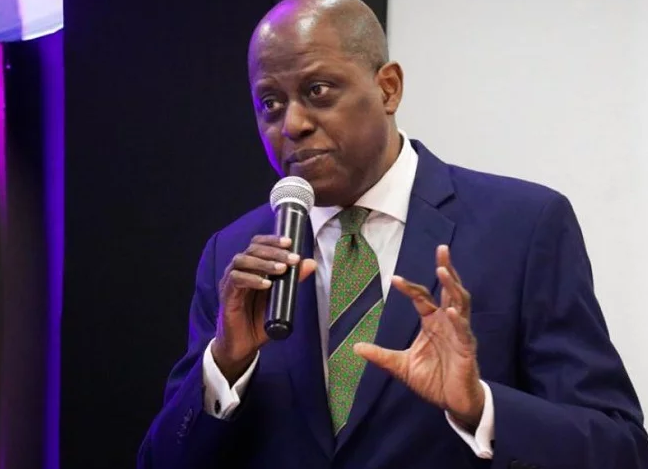
Nigeria’s foreign reserves in marginal increase, now $40.88bn
Nigeria’s foreign reserves rose to $40.88 billion as of November 21, the Governor of the Central Bank of Nigeria (CBN), Olayemi Cardoso, has said.
Cardoso disclosed this on Tuesday at a press conference after the Monetary Policy Committee’s 298th meeting in Abuja.
He said the external reserves grew from $40.06 billion at the end of October to $40.88 billion in November.
The amount represents an increase of $82 million or 2.05 per cent in 21 days.
“The external reserves rose marginally to 40.88 billion as of 21 November 2024, from 40.06 billion at the end of October 2024, available to finance 17 months of imports,” he said.
However, from the apex bank’s website, the increase in Nigeria’s foreign reserves showed $40.27 billion on November 22.
Cardoso also said, “The process of getting us where we are in terms of reserves has been a long one”.
“It is a clear indication that the policies we have put in place are certainly yielding fruits,” he added.
“However, and it’s very important to make a distinction here and to reiterate the fact that reserves are there for a multiplicity of different purposes, not least of which is to create buffers in the event of unanticipated shocks.
“So they are not there to simply whittle away. They are there to be used to more or less defend yourself where that becomes necessary
“And when we talk about shocks that are not anticipated, I think we can see how the global economies are.”
Cardoso also said the bank would continue to intensify efforts to stabilise the currency and prices.
The CBN governor said, “The currency has been stable compared to what it was in June”.
But he said for the value of the country’s currency to be stable, there must be increased exports and diversification of the economy.
Cardoso said diaspora remittance had increased due to policies put in place.
He commended those in the diaspora for helping the country accomplish over $600 million in remittances.
-

 metro1 day ago
metro1 day agoBREAKING: Port Harcourt refinery begins operation
-

 Sports1 day ago
Sports1 day agoFrench football star, Paul Pogba’s blackmail trial begin in Paris
-

 Politics2 days ago
Politics2 days agoLagos 2027: Seyi Tinubu campaign team releases his life documentary
-

 Entertainment2 days ago
Entertainment2 days agoPolygamy best form of marriage for Africa – Okey Bakassi
-

 metro2 days ago
metro2 days ago40-foot container falls on car in Lagos
-

 International2 days ago
International2 days agoTrump to sack 15,000 transgender officers from U.S. military: Report
-

 Education23 hours ago
Education23 hours agoUS University opens 2025 scholarships for international students
-
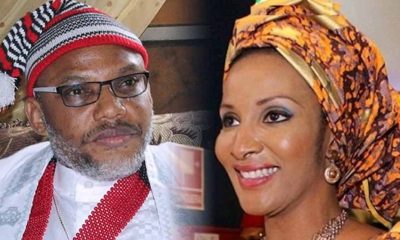
 metro8 hours ago
metro8 hours agoBianca raises hope Tinubu will free Nnamdi Kanu to restore peace in South-East

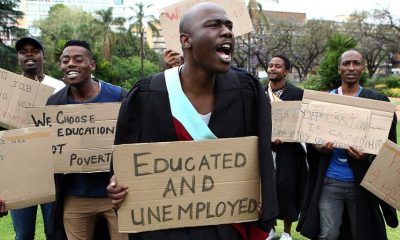

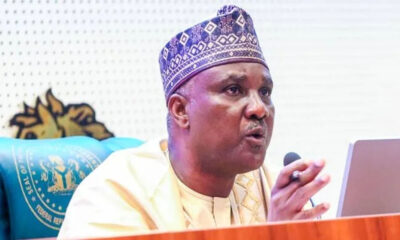

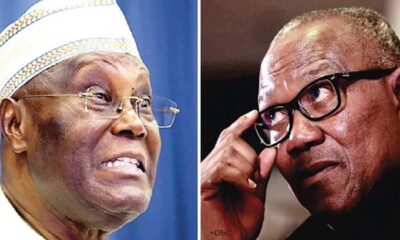









You must be logged in to post a comment Login